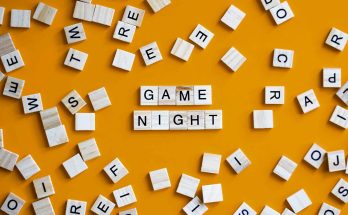As time goes on, our world becomes more and more homogeneous. This is largely because languages are dying out at an alarming rate, Unesco estimates that over half of the 7,000 spoken today will be extinct by 2100. When a language dies out, cultures and knowledge systems also disappear with it. It’s for this reason that many linguists are turning to word games as a way to save them. They’re one way in which we can save languages from going extinct.
The definition of an endangered language
An endangered language is any language that has a high risk of diminishing until eventually becoming completely obsolete. This usually happens when the number of native speakers dwindles down to almost none. A lot of cultural factors are responsible for this such as globalization, urbanization or even government policies.
Why we should preserve these languages
Languages do much more than just facilitate communication, they also hold onto histories, traditions and cultural heritage unique to their community. Each one offers a distinct worldview and knowledge system that can’t be found anywhere else in the world. By losing a language, we lose countless ideas and ways of thinking. Furthermore, fostering linguistic diversity encourages creativity, innovation and cross-cultural understanding.
The difficulties faced by preservationists
Trying to keep endangered languages from extinction poses its fair share of challenges too. For starters, there’s often little documentation available on these dying tongues for language experts to work with when creating teaching materials or resources on them later down the road, if there even still will be a road. Additionally, many of these languages have very little or no institutional support at all. In some cases, they may even be looked down upon or discriminated against by their own communities. Lastly, in this modern globalized world that’s dominated by a select few tongues, there’s little to no incentive for younger generations to learn and use these endangered languages. Overcoming these hurdles will require fresh ideas and inclusive strategies.
How word games help
Not only are word games fun but they’re also engaging ways in which people can learn new things. They help develop cognitive abilities, enhance the ability to retain information and they encourage social interaction. So when you apply them to dying languages, several important things happen:
1. Vocabulary Expansion
Word games are one of the most effective ways of expanding vocabulary in general. For endangered languages, this is crucial because it allows learners to remember words in a more enjoyable way than traditional classroom learning.
2. Oral Tradition Preservation
Many endangered languages do not have a written form but instead strong oral traditions. Word games involving verbal communication, like tongue twisters, riddles and storytelling games help preserve the oral heritage of these languages by encouraging native speakers to pass on their linguistic knowledge and cultural stories to younger generations.
3. Community Engagement
Word games are a creative way to bring communities together and boost morale among speakers of an endangered language. Hosting game nights, organizing competitions, or spearheading a language club can help people come together, practice their speaking skills, and celebrate their heritage. A close-knit community is so important when it comes to revitalizing a dying language.
4. Keep the Generations Connected
In many cases, the passing of endangered languages from old to young has been broken. Word games will bring them back in stride by creating opportunities where older native speakers can hand down their knowledge and wisdom to children and grandchildren in an engaging way. This kind of intergenerational swap is crucial if we want these languages to continue being spoken.
Case Studies
All around the world, there have been successful initiatives that use word games as stepping stones for preservation efforts. One popular program is Indigenous Language Scrabble in New Zealand developed by the Māori Language Commission. The game promotes using the Māori language by letting players form words only if they’re spelled correctly in Māori. Since it launched, this program has brought more attention to the Māori language and encouraged all age groups to speak it more.
The Endangered Alphabets Project takes a different route with founder Tim Brookes using art to make others aware of so many other writing systems that are at risk of vanishing forever along with their native languages. His wooden carvings spell out words from dying languages, he’s even created word games about them too! They serve as both educational tools and artistic expressions.
Read More: The Impact of Word Games on Language Development in Children
Conclusion
While making language learning fun, interactive, and community-oriented is good for now, it’s still essential that we also focus on broader initiatives such as language documentation, educational programs and policy support. However with efforts like these being made in innovative approaches, we can hopefully look forward to eventual thriving linguistic diversity where endangered languages will be safeguarded for generations to come.



